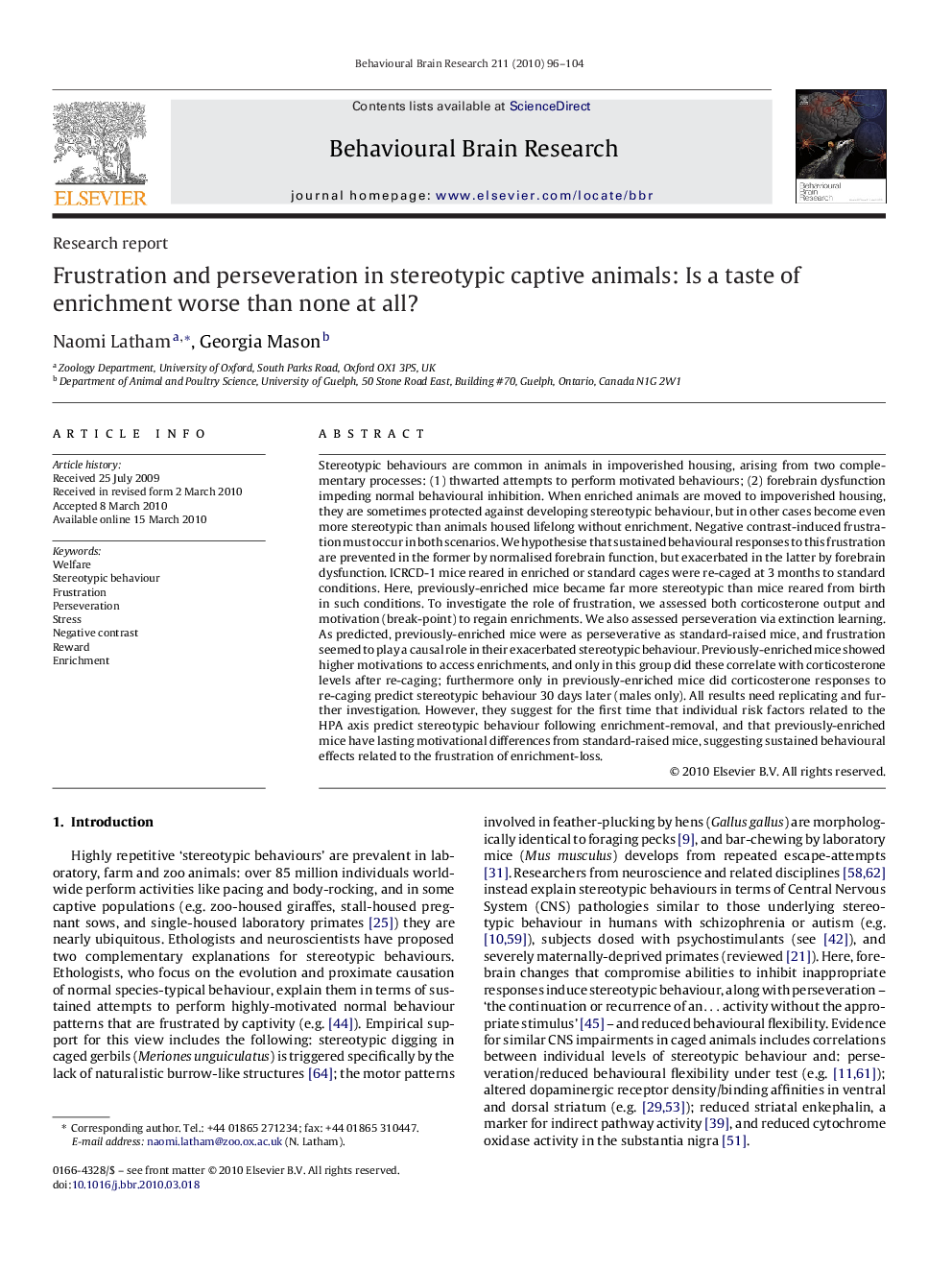| Article ID | Journal | Published Year | Pages | File Type |
|---|---|---|---|---|
| 4313847 | Behavioural Brain Research | 2010 | 9 Pages |
Stereotypic behaviours are common in animals in impoverished housing, arising from two complementary processes: (1) thwarted attempts to perform motivated behaviours; (2) forebrain dysfunction impeding normal behavioural inhibition. When enriched animals are moved to impoverished housing, they are sometimes protected against developing stereotypic behaviour, but in other cases become even more stereotypic than animals housed lifelong without enrichment. Negative contrast-induced frustration must occur in both scenarios. We hypothesise that sustained behavioural responses to this frustration are prevented in the former by normalised forebrain function, but exacerbated in the latter by forebrain dysfunction. ICRCD-1 mice reared in enriched or standard cages were re-caged at 3 months to standard conditions. Here, previously-enriched mice became far more stereotypic than mice reared from birth in such conditions. To investigate the role of frustration, we assessed both corticosterone output and motivation (break-point) to regain enrichments. We also assessed perseveration via extinction learning. As predicted, previously-enriched mice were as perseverative as standard-raised mice, and frustration seemed to play a causal role in their exacerbated stereotypic behaviour. Previously-enriched mice showed higher motivations to access enrichments, and only in this group did these correlate with corticosterone levels after re-caging; furthermore only in previously-enriched mice did corticosterone responses to re-caging predict stereotypic behaviour 30 days later (males only). All results need replicating and further investigation. However, they suggest for the first time that individual risk factors related to the HPA axis predict stereotypic behaviour following enrichment-removal, and that previously-enriched mice have lasting motivational differences from standard-raised mice, suggesting sustained behavioural effects related to the frustration of enrichment-loss.
